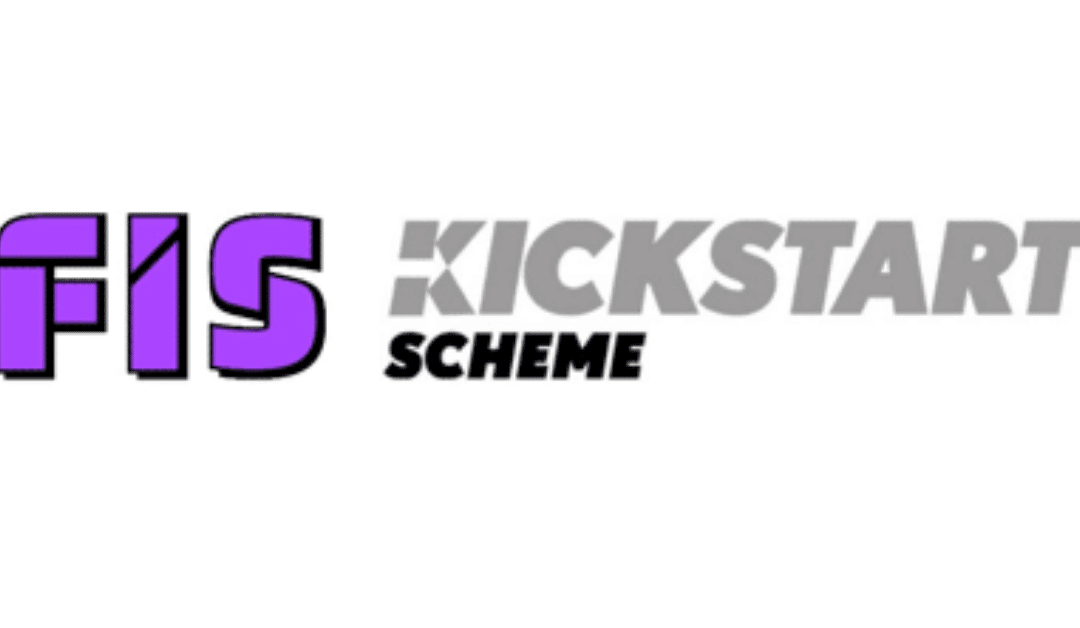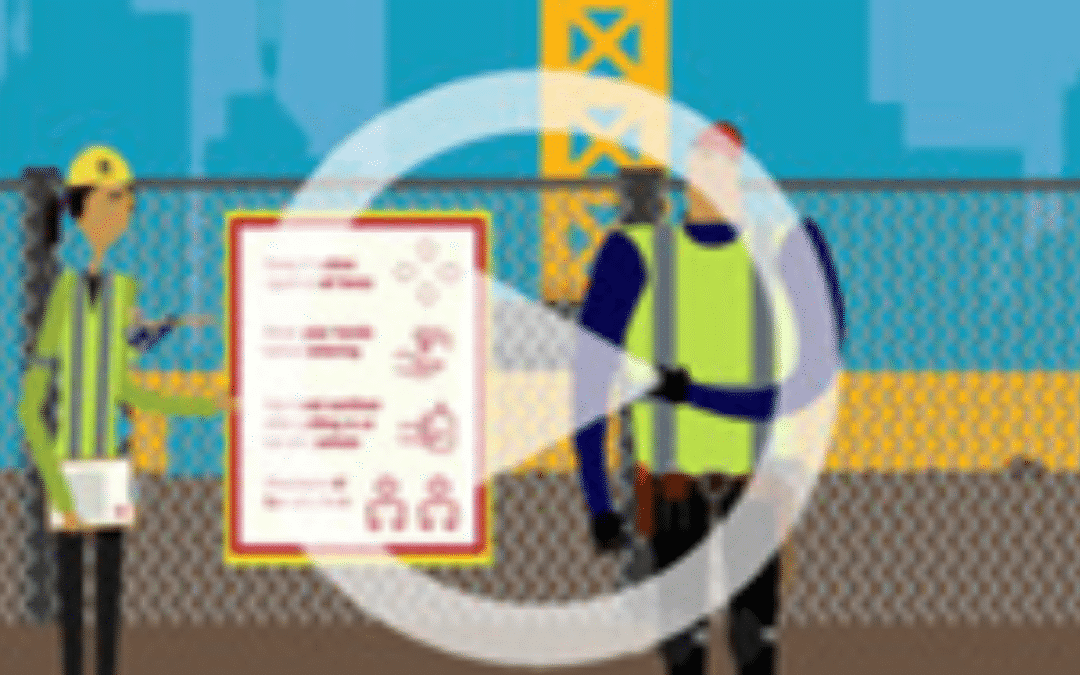
by Clair Mooney | Oct 23, 2020 | Main News Feed, Transformation
In a bid to drive a greater understanding and support the implementation of BIM in the fit-out and finishing world, UK BIM Alliance is delighted to announce a formal affiliation with the trade body for the sector Finishes and Interiors Sector (FIS).
Iain Mcilwee, Finishes and Interiors Sector (FIS) CEO “There is little doubt that, as construction reinvents itself in the post COVID/post Grenfell era, the Digital Revolution is here. If we look at the reforms that will be driven through regulatory requirements or commercial drivers linked to productivity and quality, how we create and share information through the specification and construction process is key. BIM was always going to struggle to live up to the early hype, but the principles of BIM are already helping us to adapt and change and with greater standardisation and simplification, it will help us to deliver the golden thread along with the structural and cultural changes that we need to see. We are very much looking forward to aligning and working more closely with the UK BIM Alliance and helping our community to understand and implement these changes – like with BIM itself, collaboration is everything.”
Andy Boutle, UK BIM Alliance Engagement Co-Lead “We are delighted to welcome FIS to the affiliate programme who already have an active Digital Working Group focussing efforts in this area . We look forward to supporting and coordinating future activities together.”
The Affiliate programme aims to bring together the professional institutions, trade associations and any other industry organisations to provide a consistent message and coordinated approach to digital transformation, working across silos to a shared objective.
About the UK BIM Alliance
We are here to support the built environment sector take the first fundamental step in their journey to digital transformation. The UK BIM Alliance aims to ensure BIM becomes business as usual whilst at the same time, transforming and future proofing the way the industry work. The UK BIM Alliance is also the UK & Ireland chapter of buildingSMART. For more information visit the website.
About the Finishes and Interiors Sector
FIS is the representative body for the £10 billion finishes and interiors sector in the UK. The FIS membership is drawn from contractors, manufacturers and distributors of ceilings, steel framing systems, partitions, operable walls, plastering, drylining, and specialist interior fit-out and refurbishment businesses.
FIS exists to support its members, improve safety, minimise risk, enhance productivity and drive innovation in the sector. As well as specialist publications, technical support and expert helplines, FIS is a dynamic network that brings the sector together through a range of events, awards and specialist working groups, all aimed at sharing best practice, setting standards and advising Government, that help its members to improve performance and win work.
For more information visit the website.

by Clair Mooney | Oct 23, 2020 | Main News Feed
With the news this week that unemployment surged to 4.5% by August as pandemic hits jobs, this is the highest UK unemployment rate in three years. There is also clear data showing redundancies have risen to their highest level since 2009. The National Office of Statistics states about 300,000 of those currently unemployed are aged 16-24. It is well reported the biggest industries hit are hospitality, travel agencies and employment agencies. The number claiming work related benefits, hit 2.7 million in September an increase of 1.5 million since the beginning of the crisis in March.
After a record low of 343,000 vacancies in April to June 2020, there has been an estimated record quarterly increase of 144,000 to 488,000 vacancies in July to September 2020; vacancies remain below the pre-coronavirus (COVID-19) pandemic levels and are 332,000 (40.5%) less than a year ago.
The Chancellors Plan for Jobs includes the Kickstart scheme. This gives employers an opportunity to engage an individuals for six months. Officially launched on 2 September 2020. The scheme is aimed at helping unemployed young people aged 16-24 get a foothold on the career ladder by funding six-month job placements. Under the scheme, funding will cover 100% of the relevant National Minimum Wage for 25 hours a week, plus associated employer National Insurance contributions and employer minimum automatic enrolment contributions.
One of the elements of this scheme is that applications must be for a minimum of 30 job placements. FIS recognise this is likely to be too many for the majority of our members and as such, we are delighted to advise we have been approved to act as an intermediary on behalf of you, our members and the Department for Work and Pensions (DWP).
As an intermediary, we are able to amalgamate all requests and submit a consolidated bid on your behalf.
To make it as seamless as possible for you to engage with the scheme, FIS will be playing an active part in working with DWP to select the best and most suitable people available, FIS will be there to support you through the Kickstart process. We can also help you to access the £1,500 per job placement fund to cover the initial set up costs and the costs of training and support.
We urge you to support this initiative and give unemployed young people a chance. There is no obligation to employ individuals after the work placement has concluded. Even if you don’t think you’ll be in a position to employ anyone for the next 6 months, you can still give someone an opportunity to train and develop, at no cost to yourself or your organisation and perhaps help them secure a career in construction.
The attached link gives you further information Kickstart Scheme Guidance but if you do have any further questions, please give our Skills and Training Coordinator, Paul Glover a call on 07975 759378.

by Clair Mooney | Oct 23, 2020 | Main News Feed
Following the announcement from the Welsh Government, Test Centres in Wales will be closed from 23 October (6pm) and will re-open on 9 November. There is no need to contact Pearson VUE. All booking will be cancelled with no charges and refunded back. If the booking is with a third party, please contact them for refunds or to reschedule.
Health and safety COVID-secure spot checks ongoing
HSE is carrying out spot checks and inspections on all types of businesses in all areas to ensure they are COVID-secure. By calling and visiting premises and speaking directly to employers, they can check the measures organisations have put in place are in line with government guidance.
Visit the HSE webpage which includes a short video explaining:
- how spot checks and inspections work
- what our inspectors will need to check
- how they can help you keep your workplace COVID-secure
- actions we will take if employers are not managing the risk of COVID spreading

by Iain McIlwee | Oct 23, 2020 | Main News Feed
In just 71 days there will be guaranteed changes to doing business and there are many actions you can take now to prepare.
Regardless of whether we reach a trade agreement with the EU, from 1 January there will definitely be changes to:
- the way businesses import and export goods
- the process for hiring people from the EU
- the way businesses provide services in EU markets
This week the government is launching a major public information campaign to help firms prepare and keep business moving. It has one simple message: Time is running out, so you need to act now.
Support is available, including sector-specific webinars to walk you through the changes. If you missed our webinars for the Services and Investment, Retail, Automotive, Materials and Metals, Electronics Machinery and Consumer Goods sectors, they are available to watch on demand now.
As Business Secretary I encourage you to:
- Check what actions you need to take by visiting uk/transition.
- Sign up for updates.
- Attend government webinars for additional support, sign up here.
Unless you take action, there is a risk your business operations will be interrupted. You should also check with your suppliers and customers that they are taking action.
I know these are challenging times, but the transition period is ending on 1 January and there will be no extension. It is vital your business prepares for our new relationship with the EU, outside of the single market and customs union. The Government will be there to support and help you to take advantage of the many new opportunities that being an independent trading nation will bring.
Yours sincerely,
Rt Hon Alok Sharma MP
Secretary of State for Business, Energy and Industrial Strategy
Yours sincerely,
Rt Hon Alok Sharma MP
Secretary of State for Business, Energy and Industrial Strategy
Additional Brexit Updates from the Department of Business Energy and Industrial Strategy
The updated Border Operating Model provides further detail on how the GB-EU border will work and the actions that traders, hauliers and passengers need to take. These steps will be needed regardless of whether we reach a trade agreement with the EU. The updated GB-EU Border Operating Model:
- Maps out the intended locations of inland border infrastructure. The sites will provide the necessary additional capacity to carry out checks on freight.
- Announces that passports will be required for entry into the UK from October 2021 as the Government phases out the use of EU, EEA and Swiss national identity cards as a valid travel document for entry to the UK.
- Confirms that a Kent Access Permit will be mandatory for HGVs using the short strait channel crossings in Kent. The easy-to-use ‘Check an HGV’ service will allow hauliers to check if they have the correct customs documentation and obtain a Kent Access Permit. A preview demo of the Check and HGV service is available now.
Government launches plans to keep trade flowing after 1 January 2021: The government has announced a series of measures to help keep trade flowing by minimising the risk of disruption at the end of the transition period.
Exporters: sign up for the EU dual-use OGEL: Check now whether your business will need to register for the Open General Export Licence (OGEL), for export of dual-use items to EU member states from 1 January 2021. A full listing of sectors covered, and how to register for the licence with the Export Control Joint Unit is contained in this Notice to Exporters.
HMRC has written to VAT-registered businesses highlighting actions they need to take to prepare for new processes for moving goods between Great Britain and the EU from 1 January 2021.

by Clair Mooney | Oct 22, 2020 | Main News Feed
Rishi Sunak has announced big changes to the Job Support Scheme (JSS) – set to replace furlough in November.
The Chancellor has announced an expansion of the Job Support Scheme ahead of its launch on 1 November 2020. Employees will now be required to work at least 20% of their contracted hours, rather than 33%, with employers required to contribute just 5% of wages for unworked hours, rather than 33%. Employers using the scheme will also be able to claim the Job Retention Bonus for each eligible employee retained until at least 31 January 2021.
The scheme will, as before, be open to all small businesses and larger businesses that can show an impact on revenues.
For more information click here.
From 1 November, grants available under the Self‐Employed Income Support Scheme will also be doubled from 20% to 40% of profits, increasing the maximum grant available from £1,875 to £3,750.
You can access updates via the FIS COVID-19 hub here.

by Iain McIlwee | Oct 20, 2020 | Main News Feed
Restrictions are being increased across the four nations to tackle the second wave of coronavirus, and First Minister Mark Drakeford has announced a national lockdown in Wales from Friday 23 October until Monday 9 November.
- Construction and manufacturing can continue, provided employers take all reasonable measures to mitigate the spread of coronavirus. This includes builders’ merchants, which can remain open.
- In a last minute change to the guidance, work in people’s homes can continue, as long as both the worker and household members have no symptoms of coronavirus. If a member of the household is self‐isolating, works are not recommended except to repair faults posing a direct safety risk.
- All accommodation providers are required to close, unless they are providing ‘specific services’ at the request of the Welsh Government or a local authority. This includes providing emergency accommodation for key workers, which include those responsible for the construction or maintenance of public service buildings.
A concern for the sector is that in Wales Centres that have been hosting the H&S Tests will be closing.
In Northern Ireland, a tighter lockdown has been implemented for four weeks, increasing restrictions on travel and gatherings. Again construction sites are allowed to continue to operate in compliance with social-distancing measures. Border counties in the south such as Donegal, Monaghan and Cavan have seen their level of restrictions increase, meaning only essential workers should go to work; construction has been deemed as ‘essential’ and will be allowed to continue.
In Scotland it was announced today (23rd October) that a 5 tier system is to be introduced. ‘Level 0’ is effectively the same level of protection as the Route Map Phase 3 measures Scotland reached in August and will act as a baseline, with four levels above that designed to apply increasing protection from the virus in areas according to prevalence, the risk to communities and the need to protect the NHS. Levels 1, 2 and 3 will be broadly equivalent to the UK Government levels to offer some uniformity with measures south of the border. Levels will be reviewed on a regular basis.
Ongoing financial support is set out in the framework and will be available to businesses which are required to close or which can remain open but will be directly affected by restrictions. The Scottish Government will work with local authorities to ensure grants are made available quickly and efficiently.
In the coming days the Scottish Government will engage with local government, stakeholders, economic groups and other partners, prior to a final version of the strategic framework being debated in parliament next Tuesday (27 October).
With some detail to be confirmed in Scotland, at the time of writing, Construction work can continue across the UK (subject to complying with the necessary social distancing and COVID safety measures) – in the event of workers being stopped on journeys to and from sites, Build UK has produced an authorisation letter template for employers which may be helpful.
You can access the FIS COVID Hub for all the latest news here






